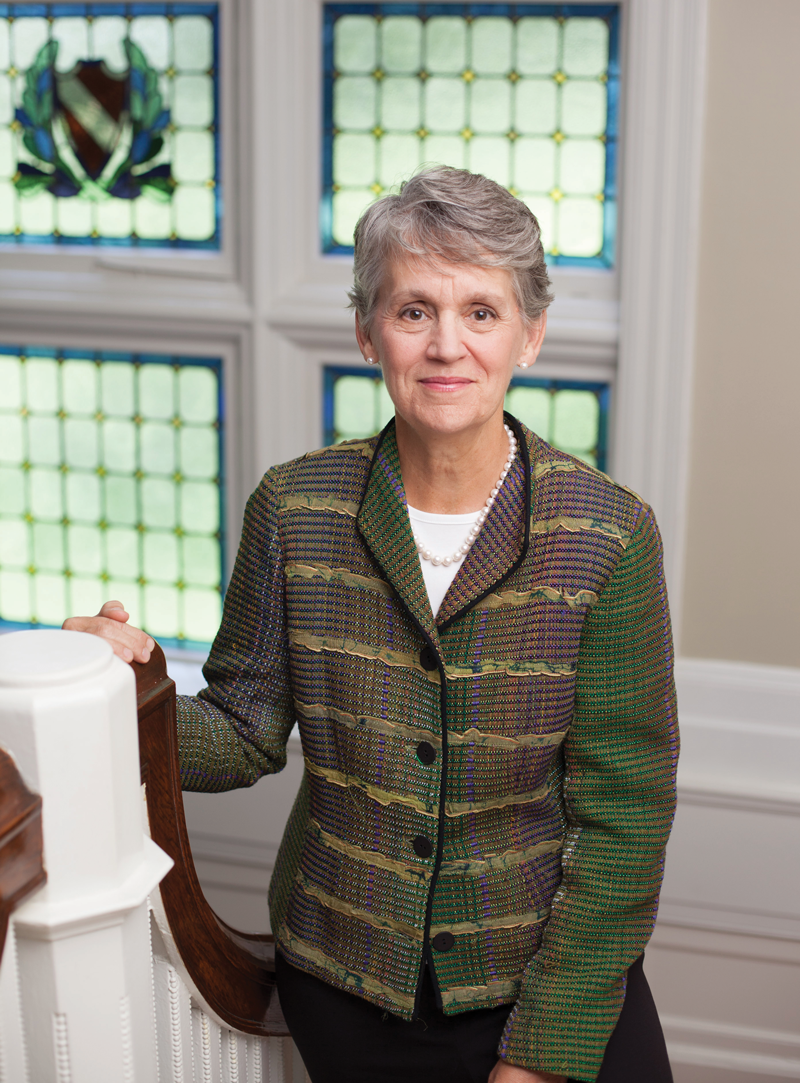Valuing the Liberal Arts
One of the most frequent concerns I hear from Vassar parents—and it’s an understandable one—is about the value of a Vassar education. It’s a question that reflects an ongoing national debate: Given the considerable investment that a college education represents, what is the return on that investment? Is it worth making?

Earlier this year, Professor of Art Molly Nesbit ’74 and I co-authored an op-ed that ran in the Huffington Post (May 2, 2014) and addressed these questions. We pointed out the prevalence of two extreme positions on the purpose of a liberal arts education that miss a common middle ground. At one extreme, education is seen solely as a financial investment, and, as such, must earn a positive return of increased earnings to justify it—the bigger, the better. At the other extreme is the notion that education has nothing to do with getting a job, that it is only about learning to think critically.
As we pointed out, neither of these positions is defensible. It is silly to say earnings and a job don’t matter, unless you are ethically committed to a life of poverty or you are independently wealthy. In our society, basic needs such as food, shelter, clothing, and health care are not necessarily guaranteed. No one should suggest that these essentials do not matter to a person’s well-being.
But as many studies have shown, that doesn’t mean our well-being always improves as our earnings go up. And it certainly doesn’t mean that the value of an education can be measured only by money. One of the real benefits of higher education is the way in which it offers options to find the human reward in one’s chosen path.
A major in art history has, somewhat simplistically, become the poster child for both sides of this debate. The truth is that art history has long been a point of contact among many fields: social and political history, linguistics, literary theory, ancient and modern languages, sociology, anthropology, philosophy, religion, biology, chemistry, economics, and physics. The student of art history can take these subjects in many directions, and toward many career paths, intellectual and commercial.
But in fact, this kind of knowledge is pursued in all the humanities, through the study of literature, music, philosophy, history, and religion. It is the kind of knowledge that a college education seeks to integrate into ways of thinking that will contribute to the greater good. The wealth of knowledge that one sees in art history fits the very definition of the benefits that come with a degree in the liberal arts.
Before making that vitally important decision about where to go to college, students and families deserve to know the data on graduates. If none of a school’s graduates can find jobs in the fields they hope to pursue, students and families should know this. The data need to be detailed enough not to be misleading; they need to include, among other things, clarifying at what point in a person’s career you are measuring earnings, how allowances for time at graduate school and a variety of career choices are made, and how family choices about such things as child-rearing are accounted for. And we have to be careful not to suggest that earnings, just because we can measure and report them, are all that matters, because few believe that to be true.
We need to be more measured, not less, as we take stock of the current debates over the value of a college education. We need standards of measurement that can account for all the returns of an education. Dollars count, yes, but an education contributes many other tangibles and intangibles to human progress and well-being. Now more than ever, the world needs graduates who can think broadly and creatively.
